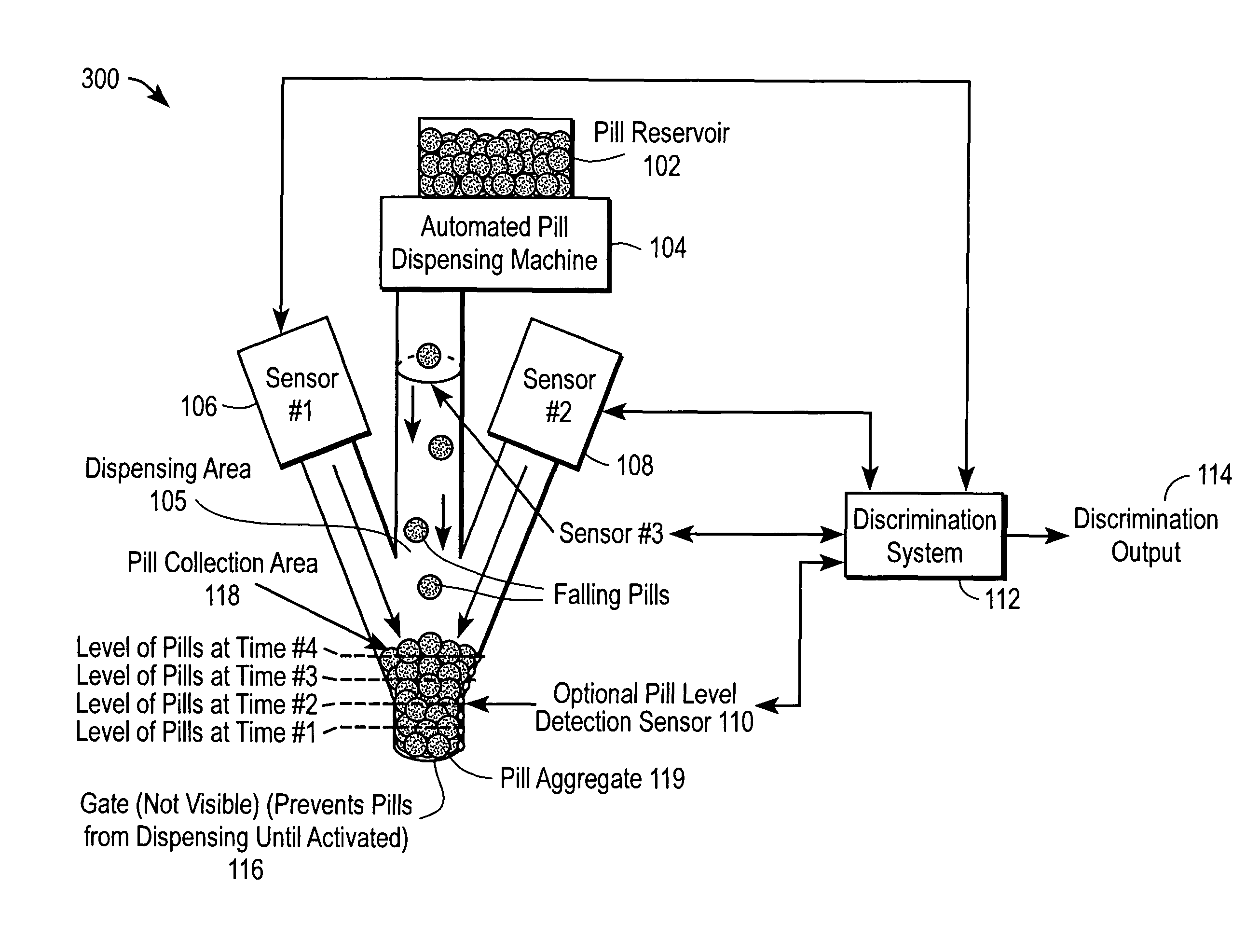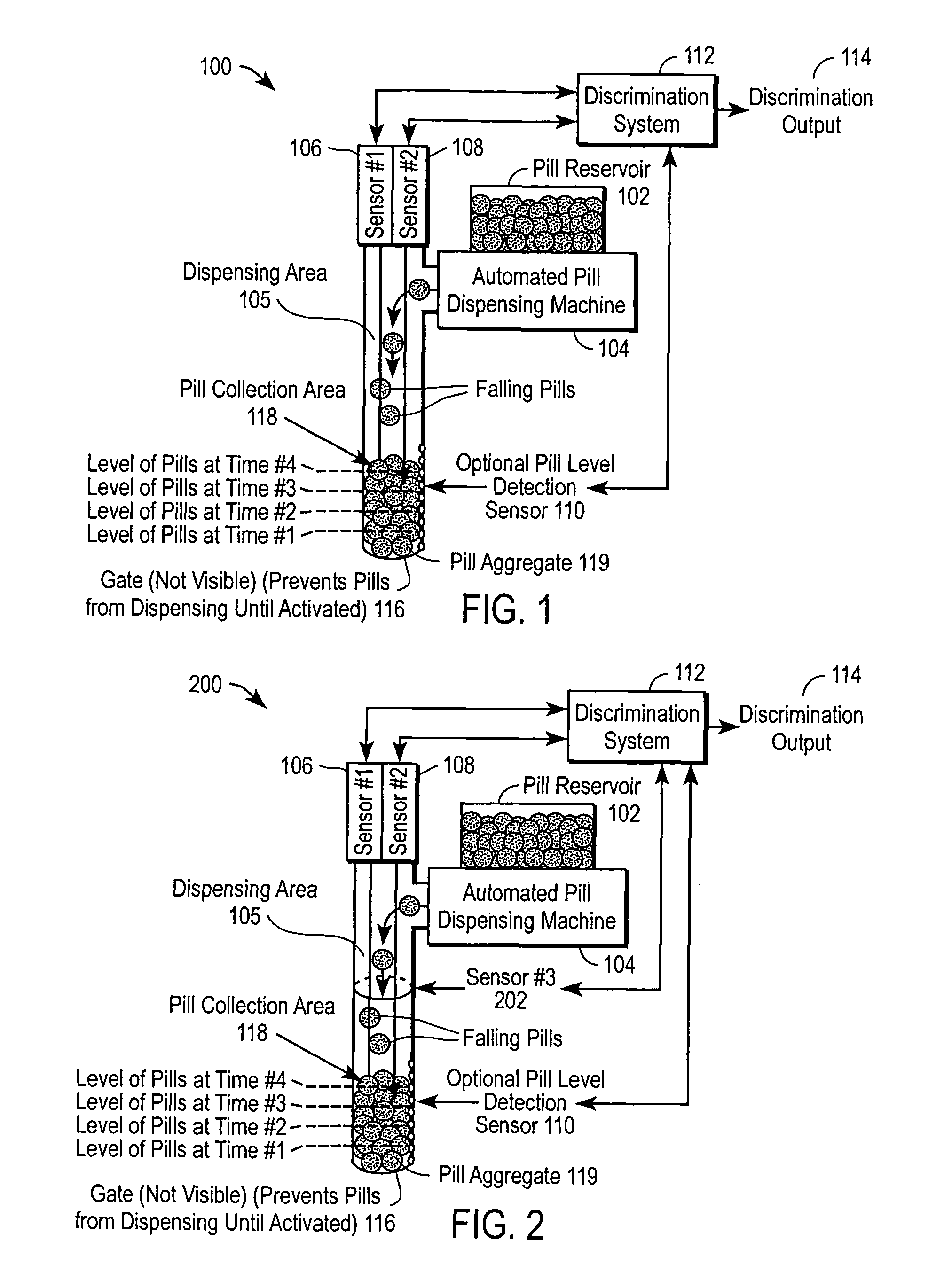Automated drug discrimination during dispensing
a technology of automatic dispensing and drug discrimination, applied in the field of drug discrimination, can solve the problems of requiring pharmacists' time, time-consuming and costly verification, and the possibility of loading the wrong drug into the wrong automated dispenser
- Summary
- Abstract
- Description
- Claims
- Application Information
AI Technical Summary
Benefits of technology
Problems solved by technology
Method used
Image
Examples
Embodiment Construction
[0017]An automated drug discrimination system inspects the pills included in each prescription, as each individual prescription is being dispensed so that the pharmacist can be certain the correct formulation, dosage and / or quality of pharmaceuticals were dispensed in the individual prescription. Thus, the pharmacist does not need to spend as much time examining the dispensed drug (which is a potential cost savings as well as a time savings, allowing the pharmacist to spend more time counseling patients). The reliability of the drug discrimination system is greater than the reliability of employing only human inspection. In addition, the system can be implemented in a manner that performs a quality inspection of every pill that is dispensed. In the context of this disclosure, the term “pill” is understood to refer to any type of substance for treatment or prevention of an illness or condition, which can take any form, such as a pill, tablet, capsule, gelcap, vial, ampule, patch, and...
PUM
 Login to View More
Login to View More Abstract
Description
Claims
Application Information
 Login to View More
Login to View More - R&D
- Intellectual Property
- Life Sciences
- Materials
- Tech Scout
- Unparalleled Data Quality
- Higher Quality Content
- 60% Fewer Hallucinations
Browse by: Latest US Patents, China's latest patents, Technical Efficacy Thesaurus, Application Domain, Technology Topic, Popular Technical Reports.
© 2025 PatSnap. All rights reserved.Legal|Privacy policy|Modern Slavery Act Transparency Statement|Sitemap|About US| Contact US: help@patsnap.com



